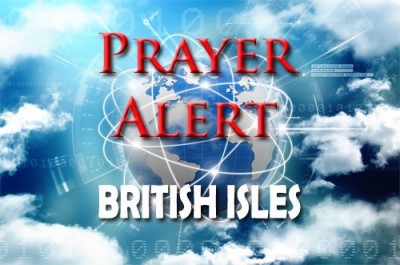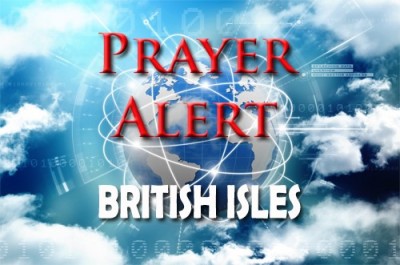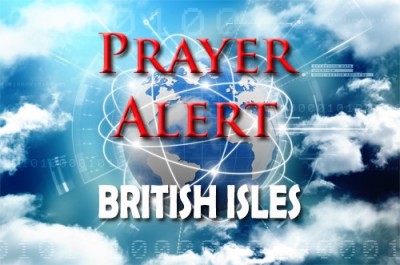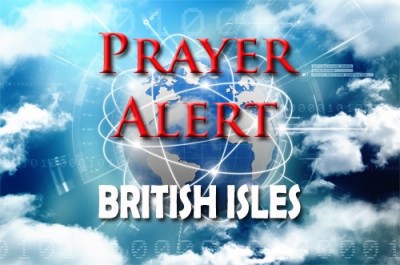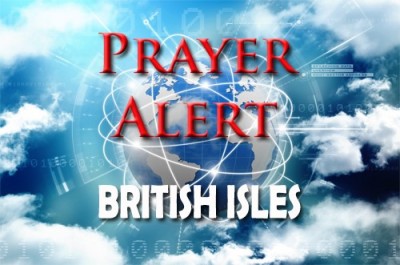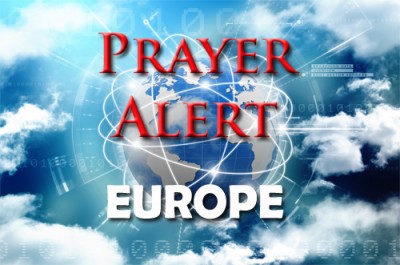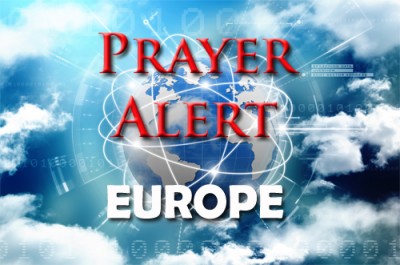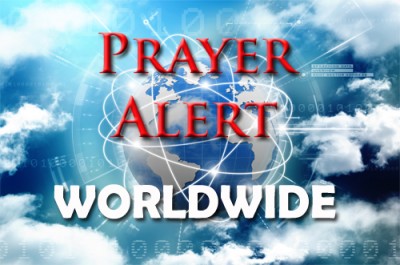British Steel collapse
23 May 2019As the Government looks for a new owner for British Steel, Liberty Steel has been flagged as a potential buyer, with a clear interest in the Scunthorpe plant. At present 5,000 jobs are at risk: 3,000 at Scunthorpe, another 800 in north-eastern England, and the rest in various sites around the world. The workers’ wages this week have been paid, and the Government will pick up the bill from now on. Pray for the workforce, in Scunthorpe and elsewhere, now in shock; for the families with mortgages on their homes not knowing where their next paycheck will come from; and for local shop owners who rely on steelworkers for their income. Pray for vision, skill, and wise investment in the British steel industry, enabling it to flourish and for jobs to be retained. See
RSE (relationships and sex education) is a contentious issue. Several schools in Birmingham recently suspended the teaching of an LGBT+ inclusive programme, No Outsiders, after protests from parents. Stephen Fry and others wrote to the education secretary saying that political, religious and cultural sensitivities should not be allowed to thwart mandatory age-appropriate RSE from the first year of primary education. The signatories say that lessons should be LGBT+ inclusive and ‘inform older pupils about sexual pleasure for LGBT and how to achieve it for themselves and a partner’. They call for statutory enforcement of even more explicit teaching about sex; for further normalisation and promotion of homosexual behaviours and that same-sex, homosexual, and bisexual relations must be presented as equally valid, with no faith school opt out, or parental right of withdrawal. They said, ‘Our goal is to ensure that pupils leave school emotionally and sexually literate and able to enjoy fulfilling, caring and enduring relationships.’
Vulnerable people in secure units
23 May 2019Up to fifty patients who should be released, some with learning disabilities and autism, are stuck in secure units run by mental health hospital charities. St Andrew's Healthcare treats up to 900 patients with severe mental health and learning difficulties. 90% of referrals are from the NHS and need specialist care. However there is a lack of suitable community places, so seclusion is the emergency response. Seclusion rooms are bare, with a hatch in the door for patients to receive food and have physical contact. BBC TV footage showed a teenager locked in seclusion, able to touch their parent only through a door hatch. Patients are supposed to be admitted to these units for nine to 18 months, but the average stay nationally is five years. One patient was detained an extra 524 days after they should have been released.
Warning against Islamophobia definition
23 May 2019Over forty representatives from a wide range of religious and non-religious backgrounds have written an open letter to the Home Secretary, warning against adopting a proposed definition of Islamophobia. They say the definition is ‘deeply problematic’ and ‘flawed’, and that officially adopting it could create ‘a backdoor blasphemy law’, restricting anyone from legitimately criticising Islamic beliefs or practices. Yet it has already been adopted by several political parties and local councils. One signatory, Tim Dieppe of Christian Concern, said, ‘The problem with the term “Islamophobia” is that it inevitably conflates the religion with the people. It may be that attempting to define this term in ways that will not restrict free speech turns out to be extremely difficult, if not impossible.’
52 migrants rescued in Channel
23 May 2019Border Force officials intercepted four flimsy dinghies carrying 52 Iranian and Iraqi men, women and children journeying from northern France to the Kent coast. The people-smuggling gangs make thousands of pounds from sending refugees across the world’s busiest shipping lane. Concerns are likely to be raised that the Home Office’s decision to deploy cutters encourages migrants to travel in the belief they will be rescued and brought to the UK. Experts believe the number of arrivals will increase in the next few months as the weather improves. All the migrants were handed over to immigration officials to be processed, fed, given medical attention and undergo security screening. Meanwhile eight men and a child suffering from hypothermia were stopped in French waters and taken back to France. See
Poland: Just Don't Tell Anyone
23 May 2019A survey showed that Poland's pro-EU opposition has a ten-point lead over the ruling nationalists ahead of European Parliament elections - a sharp turnaround that some analysts linked to a film about sexual abuse scandals in the Catholic Church. The documentary Just Don't Tell Anyone, which shows victims of child abuse confronting priests who had sexually abused them, has shocked Poles. The powerful Catholic Church has close ties with the governing Law and Justice party (PiS). The documentary has been viewed more than 18 million times on YouTube since it was released on 11 May. PiS has responded to public outcry by announcing tougher penalties for child abuse, but it has also stressed that the instances of abuse by priests should not be used as a reason to attack the Catholic Church. PiS sees Catholicism as a key element of Poles' national identity. Some say that the church is too powerful.
Austria: Russian video scandal
23 May 2019On 18 May Austria's vice-chancellor Heinz-Christian Strache resigned after German media published a video that purportedly showed him offering government contracts to a woman posing as the niece of a Russian oligarch, in exchange for media coverage and political funding. The scandal drove Austria’s Chancellor Sebastian Kurz to call for snap elections instead of trying to revive his weakened coalition government. ‘Enough is enough,’ Kurz told reporters, while Strache, who leads Austria's far-right Freedom Party, described the incident as a ‘targeted political assassination.’ The video was reportedly just months before Austria's last election, where Strache's party received 26% of the vote and 51 seats. In the wake of the video, Kurz said the abuse of power, taxes and interference in media affairs were among his concerns. Strache vowed to take legal steps to address the video.
Globally: pollution impacts on poorest people
23 May 2019Sir David Attenborough backs a new report by Tearfund, in collaboration with other agencies, stating that one person dies every thirty seconds in developing countries from diseases caused by plastic pollution and uncollected rubbish dumped or burnt near homes. He said, ‘It's one of the first reports to highlight the impacts of plastic pollution on the world’s poorest people’. Open-air burning of plastic and rubbish adds to carbon emissions, contributing to climate change. Multinational companies selling single-use plastic in developing countries must make fundamental changes to business models to halt the health crisis. This report is one of the first to highlight the impact of plastic pollution, not just on wildlife but also on the world’s poorest people. Pray for this report to impact and convict those responsible for introducing plastic to countries where it cannot be adequately managed. Pray for international action to support the communities and governments most acutely affected by this crisis.
